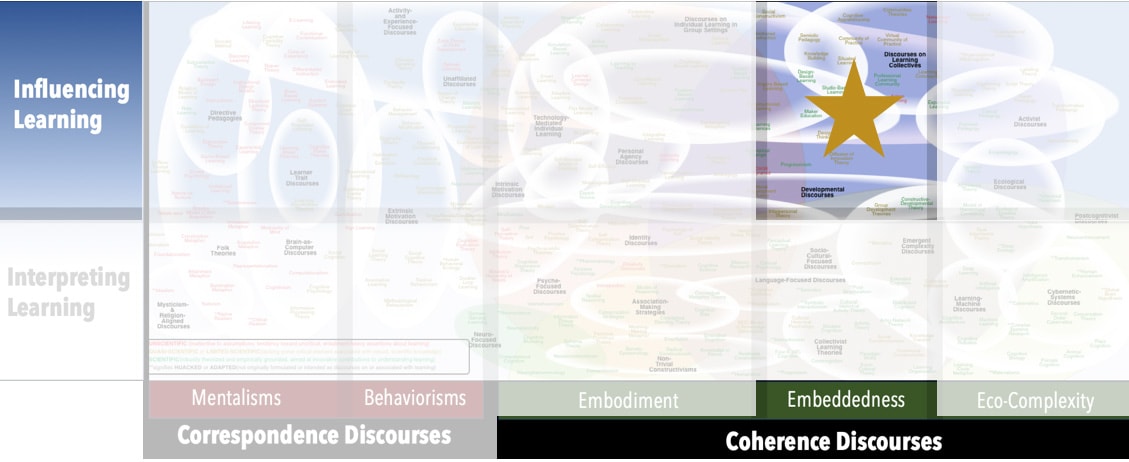AKA
Action Inquiry
Focus
Expanding group potential by addressing real-life problemsPrincipal Metaphors
- Knowledge is … scope of possible actions
- Knowing is … informed, team-based acting
- Learner is … a team (group; collective)
- Learning is … questioning, solving, & reflecting
- Teaching is … coaching, promoting, facilitating
Originated
1970sSynopsis
Action Learning is a team-based approach to solving real-life problems, intended for businesses, non-profits, and other organizations. Key components of Action Learning are becoming aware of lack of relevant knowledge and, when the problem at hand is solved, reflecting on the process and results. Most forms of Action Learning include a coach, although the team is encouraged to be self-managing. (Note: Action Learning should not be confused with Action Theory or Active Learning.) Associated constructs and discourses include:- Action Reflection Learning (Lennart Rohlin, 1970s) – a variation of Action Learning that incorporates a project team leader (“Learning Coach”) and that emphasizes team projects over individual challenges
- Action-Based Learning Questions (Reginald Revans, 1960s) – a real-life problem that, through the process of developing a solution, invites deeper thinking, exploration of diverse perspectives, and reflection on choices and implications
- Learning Action Cell – a self-identified group of teachers who engage in Action Learning around an issue of shared interest
Commentary
Action Learning is a popular and well-established approach to team-based problem solving that is associated with a significant, commercialized support industry. Consequently, proponents are often more concerned that ideas and strategies are marketable than they are theoretically defensible or empirically grounded.Authors and/or Prominent Influences
Reginald RevansStatus as a Theory of Learning
Action Learning is not a theory of learning.Status as a Theory of Teaching
Action Learning is perhaps best construed as a theory of teaching, although more in a collaborative, co-teaching sense that in a directive or managing sense.Status as a Scientific Theory
There is a body of research associated with Action Learning – with claims, for example, that it has been demonstrated to be effective in supporting the development of individual leadership and team problem-solving skills. For the most part, this research has been founded on subjective assessments (e.g., exit surveys), and it there does not appear to be a broad scientific research program built around the approach.Subdiscourses:
- Action Reflection Learning
- Action-Based Learning Questions
- Learning Action Cell
Map Location

Please cite this article as:
Davis, B., & Francis, K. (2022). “Action Learning” in Discourses on Learning in Education. https://learningdiscourses.com.
⇦ Back to Map
⇦ Back to List
